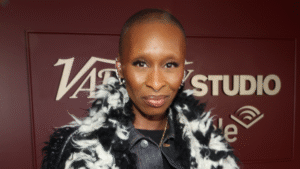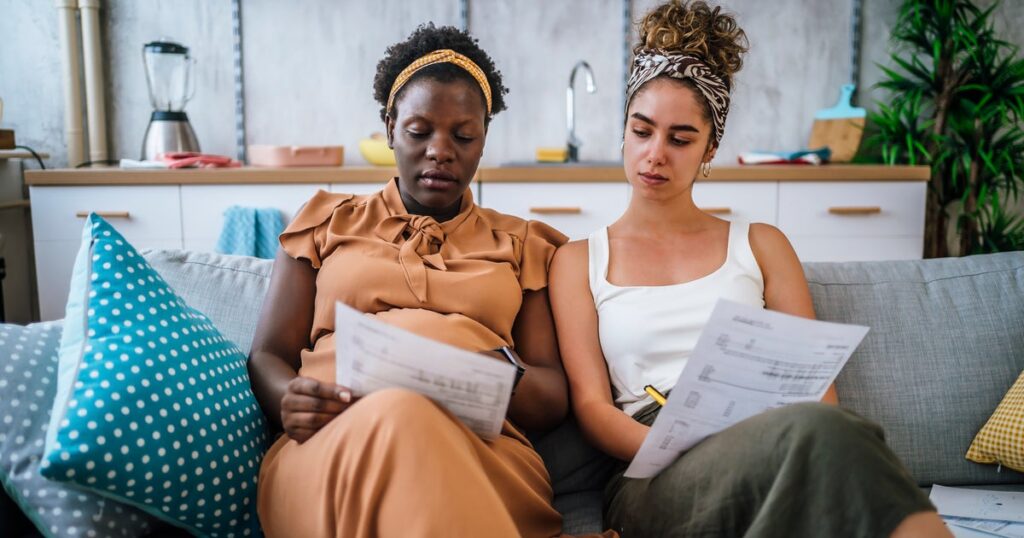Opening a joint bank account can be a big milestone in your relationship, but it’s a step that many people unfortunately take without fully considering the potential risks — especially if the relationship sours and ends catastrophically.
“Nobody wants to think about the bad part of it, but there are some risks,” said Melissa Pavone, a certified financial planner who helps people navigate divorce.
But these kinds of money conversations are necessary to have up front in order to avoid bigger headaches in the future. HuffPost talked to financial experts about what risks people should know and talk about before they open up this kind of account with a close friend, family member or partner:
Know that you both have access to the joint account funds ― and this can leave people ‘financially vulnerable.’
Under joint accounts, both account holders will have equal legal access to the funds, regardless of which person deposited the money. One person can make withdrawals without the other person’s consent.
“The joint account, essentially, is 100% both of yours, so that person can go into the bank unilaterally and take that money out,” Pavone said.
The big risk, in other words, is if you realize your trust has been misplaced.
Pavone noted that if you’re married in some states, joint bank accounts are considered marital property, so you might have recourse towards getting back those funds. But people who are dating lack this kind of legal protection.
Pavone said she has seen situations where one partner drains the account during a breakup, leaving their ex-partner “financially vulnerable.”
“When there’s no communication, that’s when people make decisions with heightened emotions,” she said.
That’s why Pavone recommends having a conversation or a written agreement about what will happen to this account if your relationship ends, including how you’ll divide what’s in the account and when access will be limited. Talk about whether you want to deposit and withdraw funds proportionally or equally, for example, she said. You can also decide to simply use the joint bank account for shared expenses like groceries or an upcoming vacation, for example.
“You have to create your own rules, because the bank rules are, ‘You both can put in, you both can take out,’” Pavone said. She said questions to ask can include, “Hey, am I responsible for your student loans?” or “Is this your house, house, my house or our house?”
Know that keeping a mismanaged joint bank account open can also impact you.
Leo Aquino, a financial coach who advocates for queer and trans wealth, said you also want to consider what happens if your partner wants to keep the joint bank account open after the breakup. In a worst-case scenario, the partner doesn’t keep up with charges, accumulates overdraft fees and gets the account sent to a debt collection process.
Now, the other person whose name was on the account has to “figure out how that affects their credit and their status with that particular bank,” Aquino explained.
To avoid these risks, be clear about what this joint account will be used for.
You want to be clear about your joint bank account’s contributions and spending goals, because assumptions can lead to major arguments. Can the joint account be used for groceries as well as house decor? If one person needs takeout after a long day of doing childcare, is that OK?
“Seeing someone’s bank account is so vulnerable, and I think it could be really easy for it to be like, ‘Well, I saw that you went to Sweetgreen again,’” Aquino said as one example. Instead of making accusations, though, seek to understand the other person’s side.
If your partner loves to order takeout, for example, keep in mind that a meal delivery can sometimes be a “game-changer” for a partner needing rest, Aquino said.
In the end, no compromise may be perfect, but these budgeting conversations are about finding ways to love and respect the other person you want to join bank accounts with.
The tone and language you use can make these conversations less awkward and more collegial, so be mindful of how you phrase, “Do we really need this?”
Especially for couples who fight about money, Aquino said one action they do in couple sessions is to identify and name those trigger points with language such as, “Hey, if you ask me about money in this way, I’m just going to shut down, and I’m not going to respond to you. Versus, if you talk to me about it like this, I might be more willing to listen to you.”
Aquino gave the example of a couple they worked with where one partner loved to buy home decorations that the more frugal partner disapproved of. What worked, in this case, was replacing chastisement with encouraging language that acknowledges the good the partner was trying to do.
This language can look like “Hey, actually, I think these butter knives are a really good purchase. They’re so cute. You got a really good deal on them,” Aquino said, and then using that opening to bring up the reality: “Our budget is $400 for home goods this month, and it’s the fourth and we’re at like $300 so … it could be time to slow down.”
Once you are clear-eyed about the risks, a joint bank account can actually be a good idea.
Aquino also noted that they work with some couples who will never join bank accounts, and that is OK, too. In those cases, “They’re always splitting everything, 50-50, and whatever else they’re spending for fun or on vacations, that’s not the other person’s business. And that’s perfectly fine.“
Ultimately, once you acknowledge the risks, it can still be a great idea to open a joint bank account. Aquino noted that in the queer community, a relationship with a friend or a roommate can be a person’s primary partner, and this can be a person you might want to open a joint bank account with to reach a travel goal, for example.
For these partners, a joint bank account makes financial sense. “Like, let’s just put money into this, and keep each other accountable, and then when we get to a certain point, we can finally book that two-month trip we wanted to take to Europe,” Aquino shared.
It’s these positive stories that are a reminder that joint bank accounts are not a bad idea ― as long as you trust and can have open communication with the person you are doing them with.
Read the full article here








